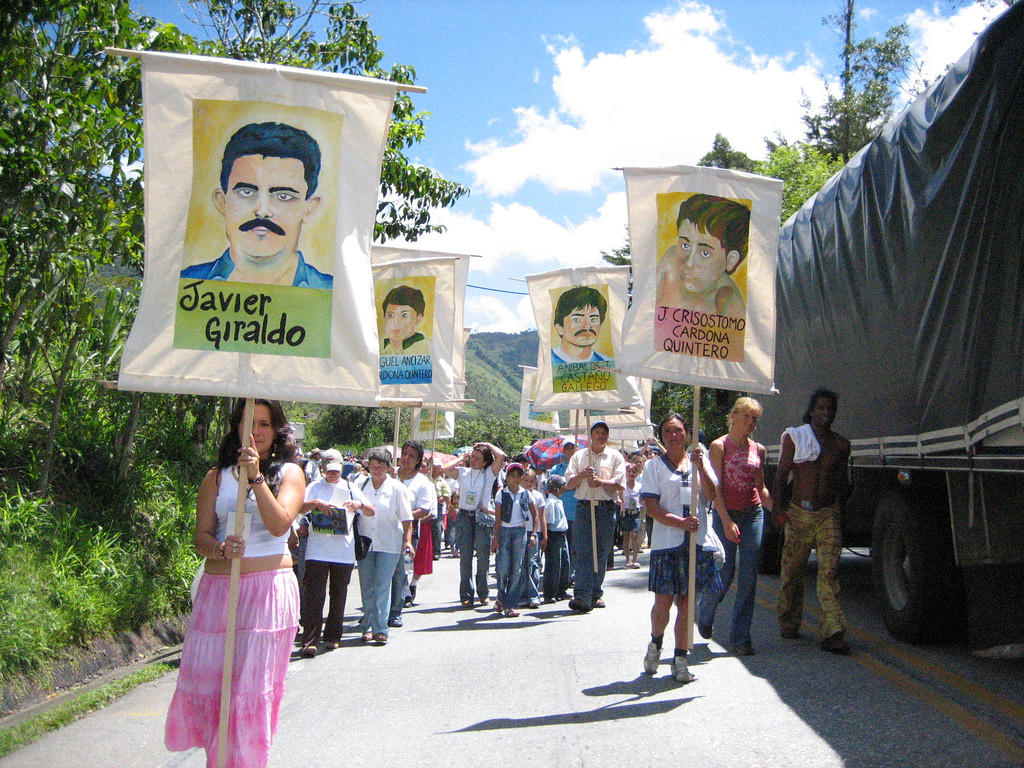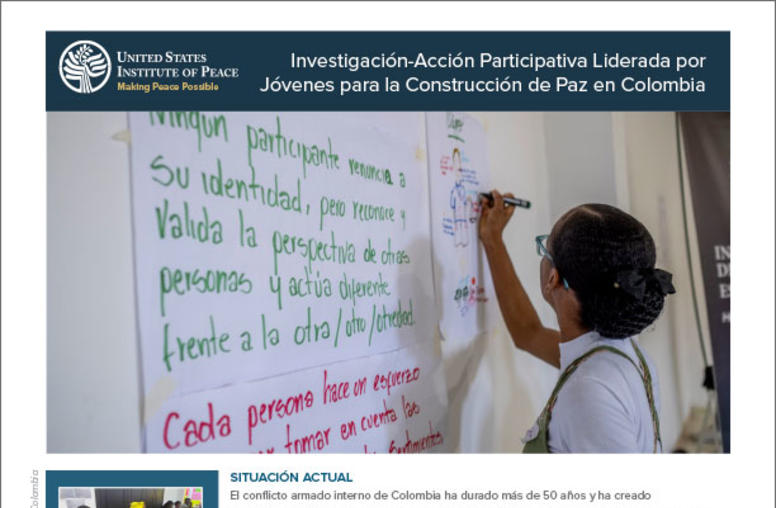Colombia Peace Forum: Seeking Truth on the 'Disappeared'
How to Meet the Havana Talks’ Promise on Recovering Remains of Conflict Victims
While Colombia’s government and the guerrilla group known as the FARC work on the final details of a comprehensive peace deal, one part of the proposed accord is already in effect: the commitment by both sides to recover and return the remains of tens of thousands of “disappeared” people—those presumed to have been secretly killed in the conflict. USIP and the Latin America Working Group Education Fund held an event on April 22 for an early assessment of how implementation of the agreements on disappearances is proceeding.

With provisional agreements and mechanisms in place, implementing and verifying these measures on the ground often proves difficult. What are the challenges? What can civil society, the negotiating teams, and the international community do to ensure compliance with the agreements? What role do victims’ organizations and human rights advocacy groups have in this process? A panel of Colombia experts answered these questions. They also considered future challenges facing a special, autonomous unit to be established after the final accord to account for the disappeared.
Speakers
Virginia M. Bouvier, Moderator
Senior Advisor for Peace Processes, U.S. Institute of Peace
Lisa Haugaard, Commentator
Executive Director, Latin America Working Group Education Fund
Diana Arango, Speaker
Executive Director, independent forensic group, Equitas
Ulianov Franco, Speaker
Executive Director, Familiares Colombia
Carlos Eduardo Valdés, Speaker
General Director, National Institute of Legal Medicine
Christoph Harnisch, Speaker Head of Delegation, International Committee of the Red Cross (via Skype)


